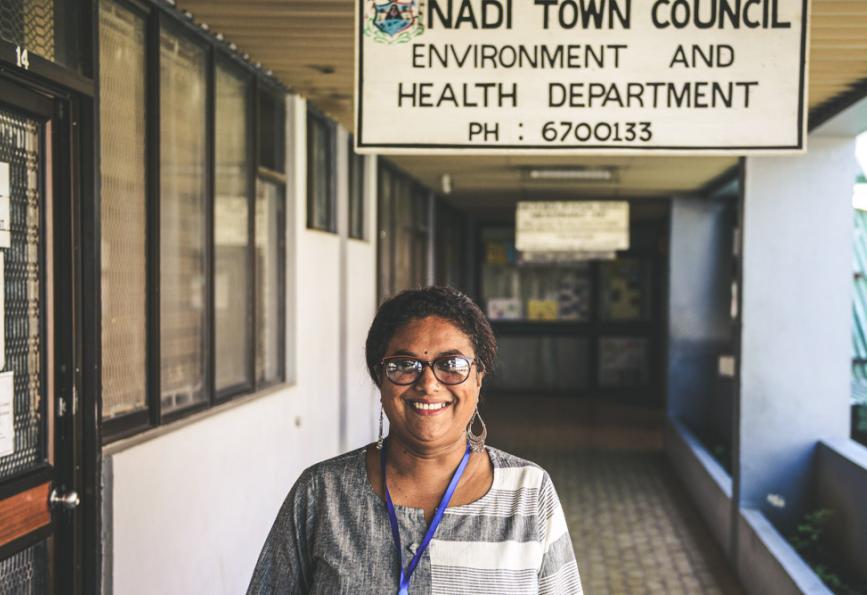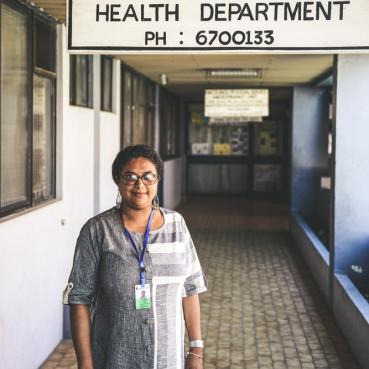
Published date: 06 Nov 2019
Premila is the Acting Chief Health Inspector at Nadi Town Council. She’s worked at the Council for the last 28 years, implementing the requirements of the Public Health Act in Fiji. She was also the Chair of the Community Reference Group, set up to work with the World Mosquito Program to ensure public acceptance of the program before releasing Wolbachia mosquitoes.
“Nadi is unique. We are the tourism attraction of the country, so we are very careful. We know we have tourists who love our sand, sun and the beaches, and they love wearing as little as possible, so we make sure they are less likely to be bitten by mosquitoes and carry a disease back home.”
Of course, tourists understand and carry their ‘bug guards’ with them wherever they go, especially the backpackers who love going everywhere, from the mountains to the sea.
The Council has tended to focus on controlling vectors – not just mosquitoes, but also rats and dogs, which carry diseases. But Premila describes herself as ‘a health inspector and an environmentalist, not a chemicals person’, so the first method for mosquitoes is to destroy the breeding sites, making sure that containers where water pools are removed and residents are aware of their responsibilities.
She also likes to introduce fish into drains. Through the Ministry of Health and Medical Services and a WHO program, Premila learned that fish eat mosquito larvae and can be used as a natural control – “only small fish, like guppies!” she says.
When she found out about the World Mosquito Program’s Wolbachia method, Premila was excited, but it was a challenge at first to understand that these mosquitoes would be different.

Wolbachia mosquitoes are now another tool in Nadi City Council's vector control toolbox, along with bulk waste collection (which gets rid of large items that might house mosquito breeding sites), health inspections and clearing by council workers, fish in the drains and other innovations like non-toxic 'breeding blockers'.
Disease incidence depends on the community and the environment, so it is important to take things to the community, but Premila knows from long experience that everyone in Nadi is very receptive and resilient. That’s why residents were happy to take up the challenge and say ‘yes we are ready to give our permission to release Wolbachia mosquitoes’.
“After Wolbachia mosquitoes were released in Suva … people started asking me when they were coming to Nadi.”
Although she has never been infected by dengue, Premila can see the government spending money on prevention and the health system, and private individuals spending money on medical expenses.
“If this is successful, we’ll be a very rich and happy community. It will reduce the financial burden on governments, the medical system and the workforce.”
One of the many practical benefits of reducing the burden of mosquito-borne disease is that funds can be used to fulfil the Fiji Government mandate to provide facilities suitable to support the reduction in non-communicable disease, like diabetes and heart disease. Premila wants to see parks set up for children and adults that provide large play areas for children and enough space to walk or ride a bicycle for 4 or 5 km.
Learn more about our work in Fiji.

